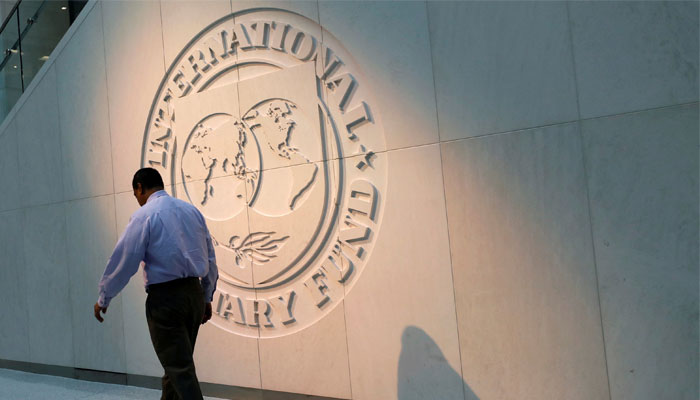Pakistan mulling options to increase IMF bailout package $8 billion
IMF can provide affordable long-term financing to countries under Resilience and Sustainability Facility
February 26, 2024

- Sources say Pakistan had discussed possibility while finalising SBA.
- IMF had rejected the proposal at that time.
- IMF's RSF provides affordable long-term financing to countries.
ISLAMABAD: Pakistani authorities are mulling options to augment the upcoming International Monetary Fund (IMF) bailout package from $7.5 to $8 billion by applying for climate finance along with Extended Fund Facility (EFF).
If the arrangement is finalised, Pakistan could increase the size of the programme from $6 billion under EFF to $7.5 or $8 billion considering the specific quota available to Islamabad under Special Drawing Rights (SDRs).
Sources confirmed to The News on Sunday that Pakistan had discussed the possibility of augmenting the size of the programme while it was finalising the ongoing Standby Arrangement (SBA) programme in June 2023. However, the global lender did not entertain the Pakistani request at that time.
Back then the Washington based lender had pointed out that the SBA was a short-term programme and hinted that the possibility could be considered next time.
The Pakistani authorities are now considering following a similar path to Bangladesh to increase the size of the upcoming programme, and climate finance would be explored to augment the Extended Fund Facility (EFF) programme.
There is one IMF instrument under the Resilience and Sustainability Facility (RSF) which provides affordable long-term financing to countries undertaking reforms to reduce risks to prospective balance of payments stability, including those related to climate change and pandemic preparedness.
This facility provides long-term financing to strengthen economic resilience and sustainability by (i) supporting policy reforms that reduce macro-critical risks associated with climate change and pandemic preparedness, and (ii) augmenting policy space and financial buffers to mitigate the risks arising from such longer-term structural challenges.
The eligible countries requesting access to the RSF need:
High-quality policy reforms addressing the long-term structural challenges of climate change or pandemic preparedness.
A concurrent IMF-supported programme with upper credit tranche quality policies (UCT programme)
It can be financing or non-financing and must be under one of the following arrangements: SBA, EFF, PLL, FCL, SCF, ECF, PCI or PSI. Emergency financing facilities (RFI, RCF), SMP, or SLL do not qualify. There should be at least 18 months remaining in the accompanying UCT programme.
Sustainable debt and adequate capacity to repay
Linked to reform progress, each measure is connected to one RSF disbursement. A reform measure can be a single policy action or a set of very closely related actions constituting a single reform. Where a measure includes multiple actions, all must be implemented to unlock the associated disbursement. See more on conditionality.
The reviews will take place concurrently with reviews under the UCT programme, once the expected date of completion of a reform measure and the associated disbursement availability date has passed.
Expected to coincide with the remaining duration of the accompanying UCT programme, minimum duration is 18 months. Expires when all amounts available are disbursed. Automatically ends upon the termination, cancellation, or expiry of the concurrent UCT programme. There will be a 20-year maturity and a 10½ -year grace period during which no principal is repaid.
Borrowers pay an affordable interest rate with a modest margin over the three-month SDR rate. A tiered interest structure differentiates financing terms across country groups, with low-income members benefiting from more concessional terms.
Pakistan has recently approved the Public Investment Management Assessment (PIMA) framework including Climate- PIMA under the guidelines of the IMF’s technical report. Pakistan is committed to the IMF to improve its public investment management (PIM) to support economic growth and service delivery and make public infrastructure more sustainable and resilient to climate change. This assessment applies the IMF’s Public Investment Management Assessment (PIMA) framework, including the Climate-PIMA module. It highlights some of the important efforts made in recent years to strengthen PIM and identifies the scope for further strengthening of key institutions. In a context where fiscal space is tight and climate action urgent, it recommends several targeted actions to move reforms forward.
Originally published in The News











